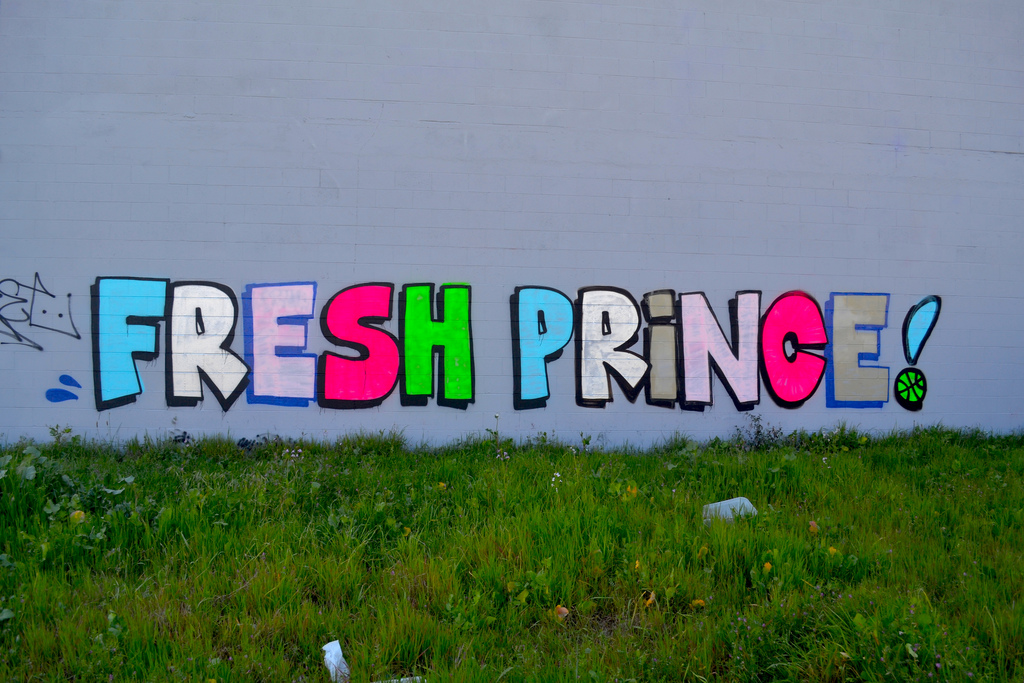-
Posts
13,557 -
Joined
-
Last visited
-
Days Won
89
Content Type
Forums
Calendar
Blogs
Gallery
Everything posted by JumpinJack AJ
-
ICE CUBE - Growin' Up Laugh Now, Cry Later (2006)
-
This has nothing 2 do with gender or America. It has 2 do with the way things are. There are shady people out there. It's our own responcibility 2 know the facts about certain things so that we don't get taken advantage of. It all goes back 2 being street smart. This has nothing 2 do with gender or America. It has 2 do with the way things are. There are shady people out there. It's our own responcibility 2 know the facts about certain things so that we don't get taken advantage of. It all goes back 2 being street smart.
-

can people get enough of george bush impersonations?
JumpinJack AJ replied to rawad_m's topic in Caught in the Middle
I think people love impressions of ANY President or political figure...unless it's a really offensive impersonation. -
I've looked 3 different record stores and i can't find the album ANYWHERE. 2morrow is my day off so i'm gonna be driving all over the place looking 4 it. Has anyone gotten it yet? If so, where?!?
-
JAMIE JONES - Why Does It Take (self-titled) (2005)
-
1st off...u are taking this way 2 serious. 2nd, some of us have full time jobs and real responsabilities and posting on a message can't take up half of our day. But since u are so patiently waiting, i'll be sure 2 post the lyric-lacking styles of Kanye West 4 u with in a week.
-

The Best of DJ Jazzy Jeff & The Fresh Prince
JumpinJack AJ replied to Hero1's topic in Jazzy Jeff & Fresh Prince
I had 2 work all day. I ran in2 Circuit City and they didn't have the album on the shelves. After work i went 2 Wal-Mart and they didn't have it either...which waz kinda okay since i realized that my friend has my credit card as i waz walking in. If anyone has it or has seen it in a record store...let me know so i can go get it. -
KACI BROWN - Cadillac Hotel Instigator (2006)
-

Ice Cube- Laugh Now, Cry Later, Releasing June 6th
JumpinJack AJ replied to bigted's topic in Caught in the Middle
Both Best Buy and Target has 2 downloads that come with the album if u get it there. It's $9.99 at both places. It's It's $8.99 at Circuit City. -
Glad 2 see he's actually posting!! Sup Kel?
-
Ha ha....Kel's here!!
-
ALL-4-ONE - Men Are Not Supposed To Cry Split Personality (2004)
-

STICKY FINGAZ, DMX, DAVE CHAPPELLE NEWZ
JumpinJack AJ replied to JumpinJack AJ's topic in Caught in the Middle
Since DMX has made some mistakes in the past few years, i'm really interested in this series. He's a real talent and stands out when u look at all the rappers and emcees who have come out since the late 90's. I'm hopin' he's getting things worked out 4 the good. And Sticky Fingaz has actually done alot of acting. I can't remember everything he's done. But he played Brandy's boyfriend on Moesha forever. I remember seeing him in a few movies also. -
Yeah, i remember back when i didn't like Coolio. "Fantastic Voyage" is a dope song...but i just hated him and that song back when it 1st dropped. I loved his 2nd single "I Remember" but i still didn't like him. By the time "Gangsta's Paradise" dropped, i gave him a chance and now i'm wishing he was making music more often. I think it's important 2 give everything an honest listen b4 judging.
-
HA HA!!!!
-
STICKY FINGAZ: Spike TV - Blade: The Series - June 28 - 10 pm It's been eight years since Wesley Snipes rocked out at the vampire disco, but that didn't stop Spike TV from making his comic-book antihero the center of it's first scripted series. Rapper Sticky Fingaz (Onyx) takes over as the samurai sword-wielding vampire slayer, who teams up with a female partner (newcomer Jill Wagner) to infiltrate the mafia-like bloodsucker underworld. "We will definitely be exploring Blade's orgin," explains series creator David Goyer. "We Know very littls about his first 35 years." Maybe we'll even learn the fella's whole name.' DMX: Soul of A Man: BET - July 12 - 9 pm The tumultuous life of harcore rapper DMX is fodder for this six-part BET reality serious that captues the gravel-voiced New York emcee's emergence from prison in February and his subsequent move to the rural burg of Carefree, Ariz. Once there, he tries to clean up his life and revive his career. "There's definitely some fish-out-of-water elements to it," explains exec producer Tracey Edmonds, who notes that the show's most compelling aspect is DMX's "struggles with the dualities of his existence. He's this black face in the midst of this cowboy town - a very odd place for a rapper." CHAPPELLE'S SHOW: THE LOST EPIDODES - Comedy Central - July 9 - 9 pm This article is longer...and at the moment i don't have time 2 type it up. If i get time later i will...but this is what it says. Donnell Rawlings and Charlie Murphy will be the hosts (since Dave isn't involved and didn't tape any hosting parts for the to-be new season. It will be 3 episodes. There won't be any Rick James skits or anything like that...but Charlie Murphy said u can expect a Mean Daddy Day Care skit. There also won't be any musical performances. The article mentions how Charlie Murphy hasn't seen Dave 2 much, but when they do see each other, they just talk about stand-up comedy. Murphy is also shooting a pilot for his own show on Comedy Central. The articles ends with the sentence "People who have been screaming for Dave are going to get a shot in the arm."
-
I was talking with a source 2day and they said that the compilation album that FP waz putting 2gether has fallen thru.' For those who don't know about this, FP waz putting 2gether a Hip-Hop/R-N-B/Reggae compilation album that waz 2 be filled with talented artists and positive messages 2 balance out the current top 10 trash. Kel Spencer waz jumping on the project as well. However, the project has recently fallen thru.'
-
LL COOL J - Around The Way Girl Mama Said Knock You Out (1990) This song never gets old!! Early 90's Hip-Hop at it's best!!
-
JJ+FP 2002 taping for MTV. It wazn't a full concert, but defintly one of the best times of my life. Other than that, it waz TLC in 2000. They just brought tons of energy, dancing, solo performances...just everything. I've seen a good bit of people perform live...here's a list of my favs...Black Eyed Peas, Wyclef, Musiq, Kris Kross, Pharsyde, De La Soul, City High. I've seen Mr. Cheeks live, he waz okay...but not all i expected. I've seen Jermaine Durpi live and he ripped it...i waz impressed. I saw Journalist and Ms. Jade when they were coming up. There sets were pretty average...but this waz also b4 they both dropped their albums. I've seen Ludacris and he's performance waz average at best...very boring. Nothing waz really happening on stage. Back in 1999, i took my girlfriend (at the time) 2 see Britney Spears. Yes, she does sing live...and yes, i did have a good time...ha ha. Just don't go spreading that around.
-
If u really need an example, i'll break out my Kanye West CDs (that's right...i have both) and take a few of the meaning less lyrics and post them.
-
It's so sad. 5 years ago, that place waz the jam. But when Sony switched up the site and board for Born To Reign, it all fell apart.
-
Tim, please share their e-mail address so that we can tell them just how much they suck, then we'll send them viruses and destroy their computers so that they can no longer ruin the music of a real emcee. Okay, maybe that might be a lil' much.
-
No offense 2 those who like modern commerical rap. But those who say Kanye West , Ludacris, and Nelly are actually nice on the mic are seriously underexposed on real quality Hip-Hop. If u listen 2 Lost + Found, u'll hear that lyric for lyric is written with a purpose and make sense...whether it's commical or deep. U don't really get that on albums anymore.
-
4 those who haven't downloaded them yet...the Dr. Dre (Still D.R.E) Remix and Cali-Love (California Love) Remix painfully don't fit with the vocals...don't even bother downloading them. If these people aren't gonna make remixes where the vocals fit...why do they even bother?!?
-
ALL-4-ONE - Beautiful As U A41 (2002)
